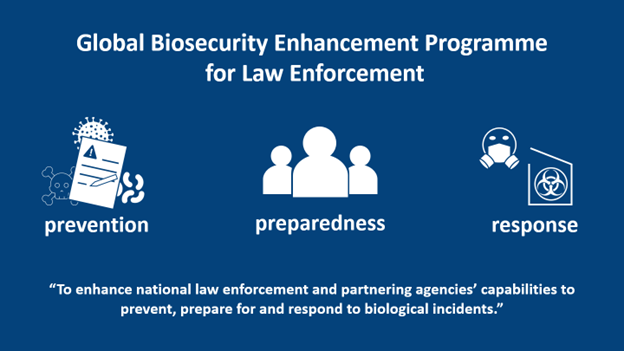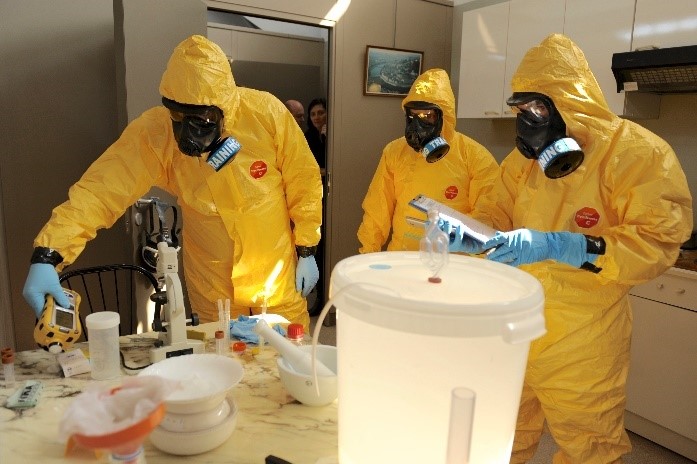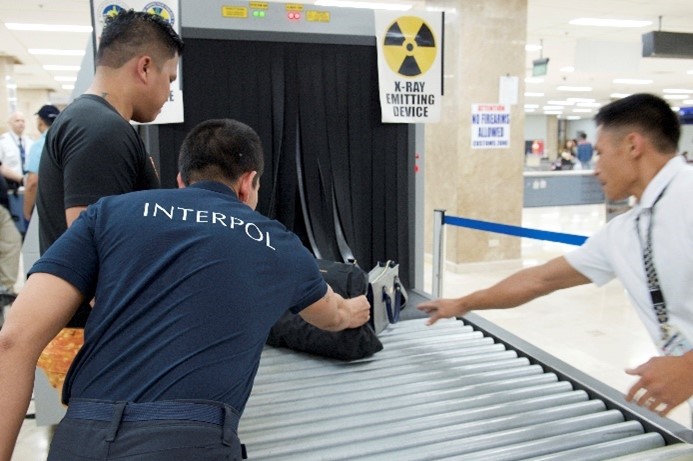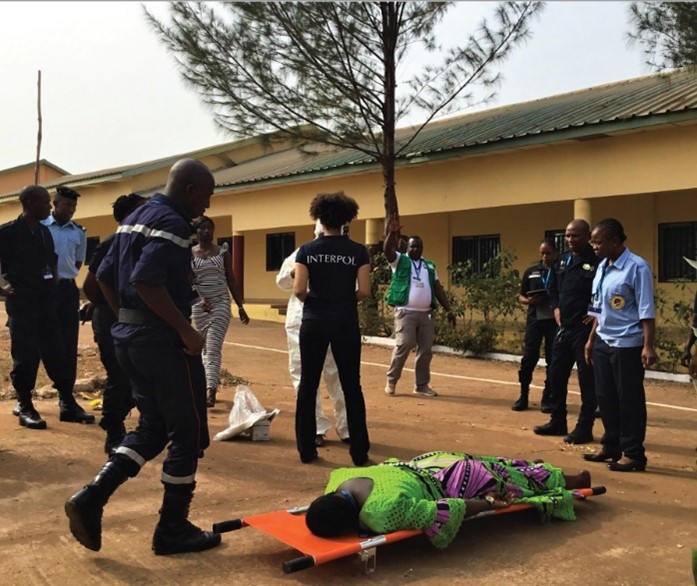Capacity Building and Training
It is essential to build capacities in accordance with international standards and best practices in the areas of prevention, preparedness and response to biological incidents.

We support member countries through a holistic list of capacity building and training activities, ranging from online courses, in-person training and operational support.
Based on a thorough needs and capabilities assessment phase, we develop an action plan for beneficiary countries in close cooperation with national authorities. This ensures a tailored hands-on training package, which follows a multi-agency approach from start to finish.
Our activities focus on issues including biological threat awareness, crime scene management, dual-use materials, and online threats, such as Darknet investigations. We tailor these activities for a broad range of national agencies. This includes, but is not limited to, law enforcement, public health and veterinary services.
Successfully applying key inter-agency principles can limit the impact of a disease outbreak and prevent damage to populations on an irreversible scale.
PROJECT RHINO
Project RHINO strengthened the capacity of member countries to implement effective measures to control large epidemic outbreaks and adequately ensure public safety and security.
The Project Rhino awareness video (below) highlighted the importance of cooperation and coordination between law enforcement and health services in response to an outbreak.
Emergency and crisis support
We offer operational response and investigative support to member countries in emergency and crisis situations, such as the potential release of biological materials from a natural or deliberate origin.
This support may be in the form of an INTERPOL Incident Response Team, immediate trainings, operations, provision of equipment, investigative support, or assistance with other INTERPOL policing capabilities.
Publications
We write and contribute to a variety of documents, including policy papers, guidelines, training videos and standard operating procedures. With this, we aim to encourage knowledge-sharing and broaden the accessibility of expertise for law enforcement personnel and other actors worldwide.
Most resources are produced for law enforcement use only and are available for all INTERPOL National Central Bureaus. Other law enforcement officials requiring this information should contact the NCB in your country.







